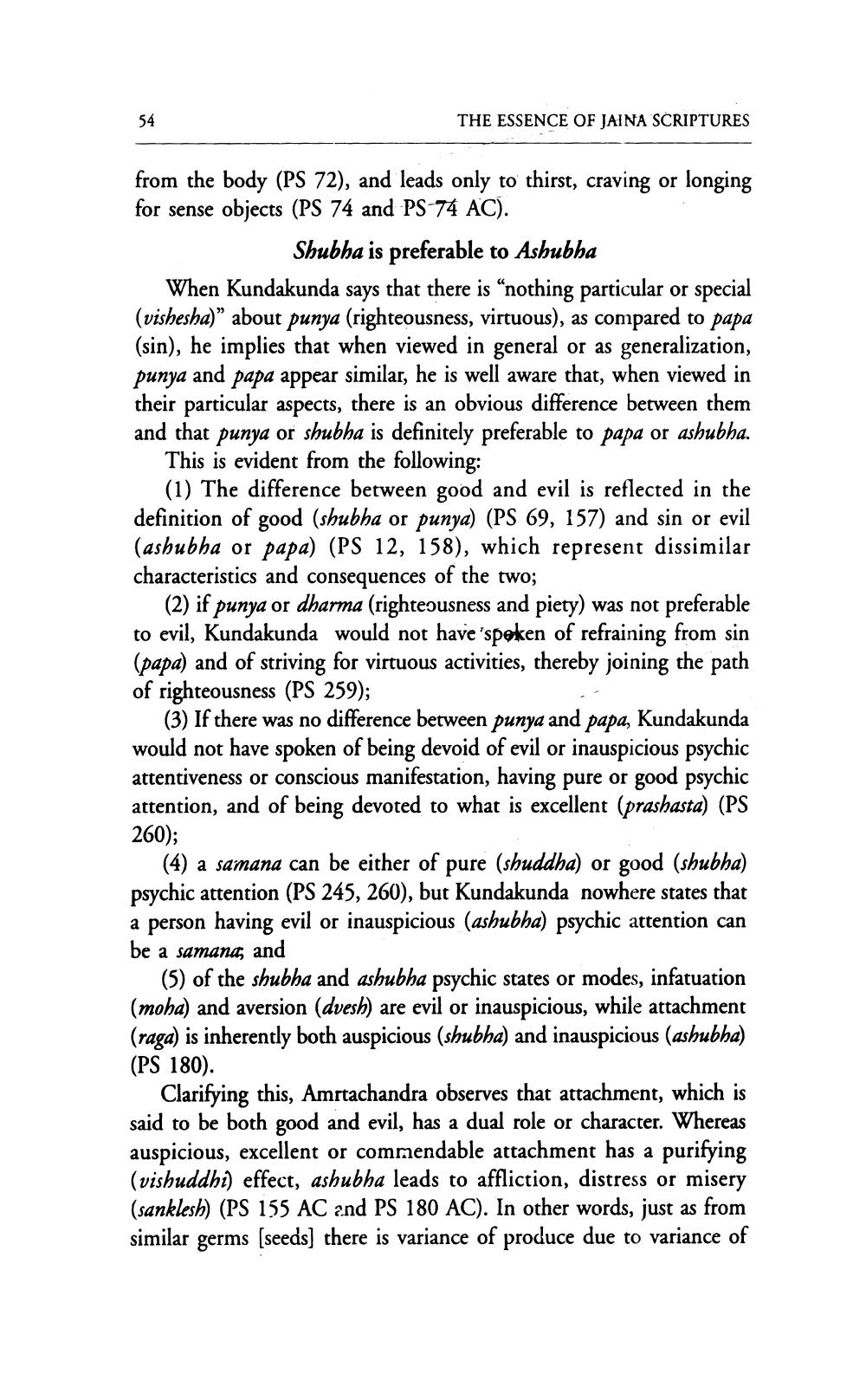________________
THE ESSENCE OF JAINA SCRIPTURES
from the body (PS 72), and leads only to thirst, craving or longing for sense objects (PS 74 and PS 74 AC).
Shubha is preferable to Ashubha When Kundakunda says that there is anothing particular or special (vishesha)” about punya (righteousness, virtuous), as compared to papa (sin), he implies that when viewed in general or as generalization, punya and papa appear similar, he is well aware that, when viewed in their particular aspects, there is an obvious difference between them and that punya or shubha is definitely preferable to papa or ashubha.
This is evident from the following:
(1) The difference between good and evil is reflected in the definition of good (shubha or punya) (PS 69, 157) and sin or evil (ashubha or papa) (PS 12, 158), which represent dissimilar characteristics and consequences of the two;
(2) if punya or dharma (righteousness and piety) was not preferable to evil, Kundakunda would not have 'spoken of refraining from sin (papa) and of striving for virtuous activities, thereby joining the path of righteousness (PS 259);
(3) If there was no difference between punya and papa, Kundakunda would not have spoken of being devoid of evil or inauspicious psychic attentiveness or conscious manifestation, having pure or good psychic attention, and of being devoted to what is excellent (prashasta) (PS 260);
(4) a samana can be either of pure (shuddha) or good (shubha) psychic attention (PS 245, 260), but Kundakunda nowhere states that a person having evil or inauspicious (ashubha) psychic attention can be a samana, and
(5) of the shubha and ashubha psychic states or modes, infatuation (moha) and aversion (dvesh) are evil or inauspicious, while attachment (raga) is inherently both auspicious (shubha) and inauspicious (ashubha) (PS 180).
Clarifying this, Amrtachandra observes that attachment, which is said to be both good and evil, has a dual role or character. Whereas auspicious, excellent or commendable attachment has a purifying (vishuddhi) effect, ashubha leads to affliction, distress or misery (sanklesh) (PS 155 AC and PS 180 AC). In other words, just as from similar germs (seeds) there is variance of produce due to variance of




